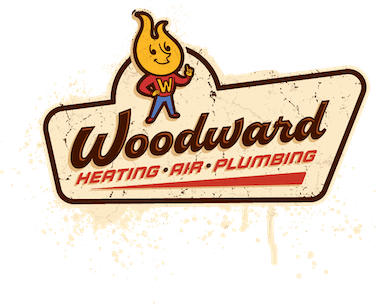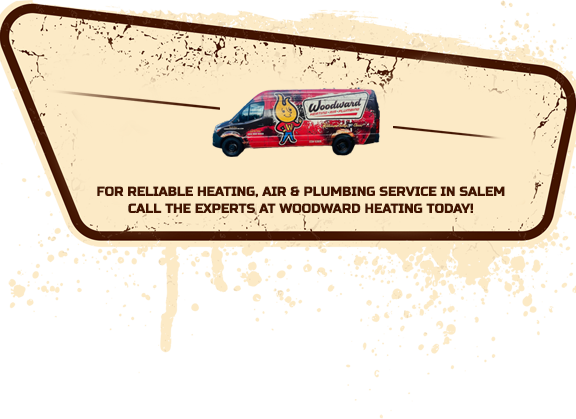
Heating your home during winter can be expensive. Many homeowners are on a budget and need to lower that cost as much as possible. With that in mind, here are some strategies that can have an immediate effect but also some long-term measures that you can budget for and work toward.
Local Assistance
LIHEAP is a federally funded program that is available to many Oregon residents. To be eligible, you must already participate in a program such as SNAP, SSI, or TANF, or you must show that your household is below 60% of the state median income based on the resident count. The OHCS also provides community-based programs that can provide some assistance for heating bills on an as-needed basis.
Seasonal Inspection and Tune-Up Services
If your furnace is currently under warranty, you have to schedule annual maintenance as a requirement of that coverage. Failure to do so voids the warranty. But regardless, a seasonal inspection and tune-up in autumn is simply good practice. Many homeowners underestimate just how much is saved through tune-ups. Those savings get even bigger as the system ages and you avoid common inefficiencies.
Use a Smart Thermostat
The EPA estimates that a smart thermostat saves homeowners about 10% of their home heating bill. You can have a temperature setting for while you’re at home and active, at home but sleeping, and at work or school. While you can do this manually as well, it’s unlikely that you can do it with the consistency and precision of a thermostat, which is where the savings really come in.
Lower the Temperature and Bundle Up
The average home has a heating setting of 78 degrees. While that’s not unreasonable, the EPA recommends lowering that to 68 and wearing heavier clothing to compensate. While lounging on the couch or bed, you can shed the extra clothing and use a blanket instead. This is not much of an inconvenience when you get used to it, and the EPA estimates that it can lower your heating costs by another 10%!
Optimize Your Ventilation
About every five years or so, you should have your ventilation system inspected, evaluated, and upgraded as needed. But many homeowners inadvertently increase their heating costs with misguided choices. Do not close off rooms or registers unless you have a zoned system that can compensate for the pressure difference. If you have ceiling-mounted registers, deflectors should be used on all registers that are not optimally positioned, such as not above a window. If you have floor-based or low-wall registers, you should ensure that your furniture layout is optimizing air circulation in the room rather than interfering with it.
Take Advantage of Ceiling Fans
Heat rises. Ceiling fans push the warm air back down into the space you occupy, which makes the room feel warmer. Ceiling fans should be used throughout your home, and you should consider more if you don’t have a fan in almost every room. Be mindful that ceiling fans should spin in a clockwise direction during winter. There’s usually a small switch on the fan’s base that lets you change direction.
Make Use of Natural Sunlight
While you’re home during the day, you can make use of natural sunlight in the rooms you’re occupying, and you can use blinds to control just how much light and heat are added. If you invest in smart blinds and the like, you can do even more. Your smart home can sense the available light and open the blinds and lower the thermostat as needed and vice versa.
Use a Humidifier
Home heating tends to make the air drier. That results in dry skin, eyes, throats, and noses. It also leads to static electricity. But another byproduct of drier air is air that feels colder. The best way to compensate for this is a humidifier that can keep the relative humidity at an appropriate level. Whole-home humidifiers are quite effective, but if that is currently beyond your budget, even an inexpensive portable unit that you bring with you from room to room can make a big difference.
Consider Space Heating
Most people tend to use a couple of areas of their homes much more than the others, and that makes space heating a solid investment that lets you run a lower temperature throughout the home. The important thing when choosing a space heater is ensuring that it’s safe to use indoors. Not all space heaters are, and it’s better to spend a little more to purchase a product that gives you peace of mind.
Schedule an Energy Audit
This is the point where we get into the longer-term strategies that you can plan for down the line. A professional energy audit provides you a comprehensive view of your home concerning heating, cooling, ventilation, electricity consumption, and so forth. They’re valid for about four years and essentially provide you with priorities that you can use to determine how you spend on home improvement.
Install New Windows
Windows are a likely culprit when it comes to high home heating bills. New energy-efficient windows can last 20 years or more, and that makes them a great area to really invest in.
Install New Insulation
Insulation is also key to an energy-efficient home. The good news is that wall-based insulation can last 100 years. But if you have an older home, it may be time to replace the insulation. It’s also worth noting that insulation in attics and crawl spaces does not last as long and needs to be replaced more frequently. If you spend a lot of time in your garage during the winter, you’ll also want to be sure that it’s insulated.
Seal Your Home
Sealing refers to eliminating cracks and other spaces in walls and foundations. It can make a big difference when it comes to heating, but it also means that your home needs good mechanical ventilation. There should be no cracks in your ductwork or around pipes or connectors. Your HVAC technician can check for air leaks during your system’s yearly inspection.
Install a New HVAC System and Consider Zoning
After 15 years, it’s time to consider replacing your HVAC system. Systems get more inefficient over time, and a new unit will no doubt have an immediate effect on your monthly heating bill. You may also want to consider a zoned system. While more expensive upfront, it can save considerable money by providing you with independent temperature control over the various zones in your home.
Your Home Heating Pros in Oregon
Woodward Heating Air Plumbing has been meeting the home heating needs of residents in Salem and throughout the surrounding areas for more than 30 years. Our team performs heating installations, repairs, and precision tune-ups. We also perform AC installation, maintenance, and repair. Our other services include air purification systems, duct cleaning, fireplace installation and maintenance, gas piping, and thermostat installation and programming. Contact us today for further details or to schedule an appointment!





